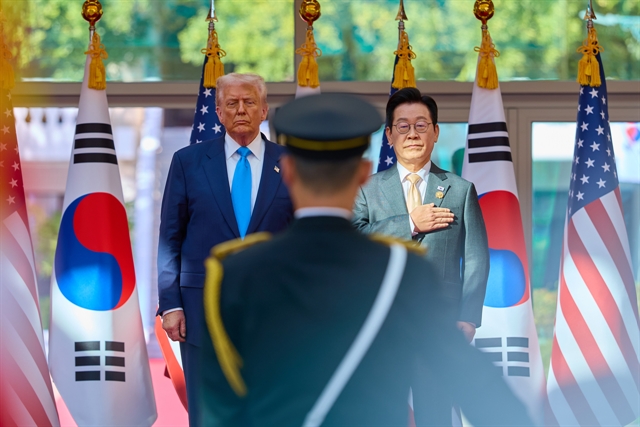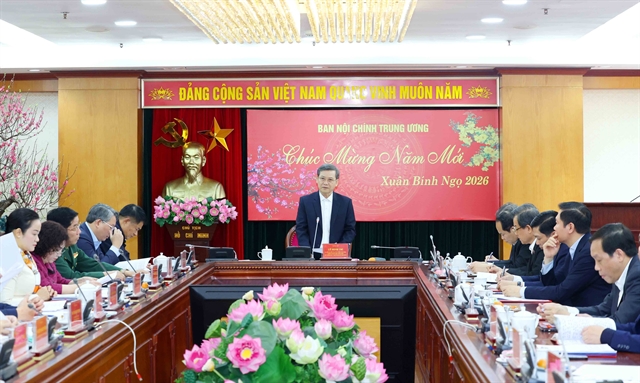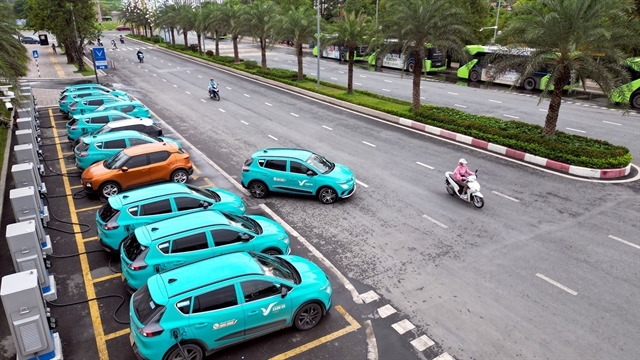 World
World

British Prime Minister Theresa May will seek to allay fears of the disruptive impact of Brexit after a wave of criticism when she addresses European Union leaders today at her first EU summit.
LONDON - British Prime Minister Theresa May will seek to allay fears of the disruptive impact of Brexit after a wave of criticism when she addresses European Union leaders today at her first EU summit.
May will use the leaders’ working dinner in Brussels to confirm her plan to start formal exit talks by the end of March, paving the way for Britain to leave the bloc by early 2019.
The timetable, set out earlier this month at her Conservative party conference, was welcomed by European leaders who had been pressing for a swift divorce since the referendum vote to leave in June.
But May also angered many member states by stating her intention to control EU migration into Britain while at the same time seeking "maximum freedom" to operate in the EU’s single market.
European leaders have repeatedly said that the two demands are incompatible, and have warned that London should expect to pay a heavy price for its decision to leave.
The face-off has caused the pound to plunge to historic lows and raised global economic fears about the impact of a so-called hard Brexit.
May will make clear to EU leaders that Brexit is irreversible but will urge them to help make it work for both sides, a source in her office said.
"She wants the outcome to be a strong Britain as a partner of a strong European Union," the source said, speaking on condition of anonymity.
"She doesn’t want the process of the UK leaving to be damaging for the rest of the European Union. We want our departure to be a smooth, constructive, orderly process, minimising uncertainty."
Sounding out member states
European Commission chief Jean-Claude Juncker has said there will be no negotiations before Britain triggers Article 50 of the EU’s Lisbon treaty, which begins a two-year countdown to leaving.
May was excluded from the last EU summit in Bratislava last month, and a senior EU official said that there would be no debate after her address to leaders today.
"It will be for the 27 to discuss Brexit and what sort of reactions they should have," the official said.
But the British premier, who took over in July following the resignation of David Cameron, will likely use the event to sound out potential allies.
She has already visited Denmark, France, Germany, the Netherlands and Spain, and will hold bilateral meetings in Brussels with the leaders of Estonia and Romania.
"The UK will be desperate to start pushing other member states to define what they’re prepared to countenance from the Brexit negotiations, before they reach a common position," said Professor Iain Begg from the London School of Economics.
In a sign of the complexity of the discussions ahead, May indicated on Wednesday that she could seek to extend the negotiation process, telling lawmakers it might take "two years or more".
Get house in order
One problem May faces is that even her own government cannot agree on its strategy for Brexit, with some ministers pushing for a clean break with the EU and others seeking continued ties to protect the economy.
Despite her tough talk at the Conservative conference, there were media reports this week that Britain may consider paying for single market access for key industries, such as the City of London financial sector.
Her timetable also risks being upset by a legal challenge at the High Court over her refusal to allow parliament a vote before she triggers Article 50.
A decision is due by the end of the year.
Another domestic headache is Scotland, which voted to stay in the EU and whose nationalist government is threatening a second referendum on independence if it is forced to leave the bloc.
"I suspect they will take the line at the summit that May has got to get her internal house in order before they even start talking," noted Professor Catherine Barnard, of the University of Cambridge. — AFP




